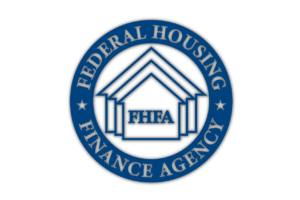HUD

Arthur Jemison Nominated as CPD Assistant Secretary
President Joseph Biden (D) nominated Arthur Jemison to be Assistant Secretary of Community Planning and Development (CPD) at HUD. Jemison has been serving in an acting capacity and now awaits approval before the Senate.

HUD Designates 2022 DDAs, QCTs
HUD designated Difficult Development Areas and Qualified Census Tracts for 2022.

Fannie, Freddie Each Increase LIHTC Investment by $350 Million; FHA Risk-Share Programs Resume
Last week, the White House released a sweeping set of actions the Biden-Harris administration is taking to increase the supply of affordable housing.

NLIHC, PAHRC Update National Housing Preservation Database
The National Low Income Housing Coalition (NLIHC) and Public and Affordable Housing Research Corporation (PAHRC) updated its National Housing Preservation Database with new data for properties assisted by Section 8 Project-Based Rental Assistance, LIHTCs, Public Housing, HUD-insured mortgages, Section 202 Direct Loans, Section 515 mortgages, Section 538 Guaranteed Loans, fair market rent and Real Estate Assessment Center scores.

Senator Wyden to Introduce DASH Act
Senate Finance Committee Chairman Ron Wyden (D-OR) has released the text of his soon to be introduced Decent, Affordable, Safe Housing for All (DASH) Act (full text, overall summary, section by section summary).

HUD & FHFA Enter into Fair Housing, Lending MOU
HUD and the Federal Housing Finance Agency (FHFA) entered a Memorandum of Understanding (MOU) to enhance their enforcement of the Fair Housing Act. The MOU allows HUD and FHFA to enforce fair housing and fair lending requirements by promoting information sharing, coordination on investigations, compliance reviews and the ongoing monitoring of Fannie Mae and Freddie Mac.

Senate Banking Committee Approves Smith Nomination to HUD General Counsel
The Senate Banking, Housing and Urban Affairs Committee voted unanimously to favorably report the nomination of Damon Smith to serve as HUD general counsel. Smith currently serves as acting general counsel and was principal general deputy counsel for HUD during the Obama administration.

HUD Updates Multifamily Q&A to Include CDC’s New Eviction Moratorium
HUD’s Office of Housing updated its COVID-19 Q&As on August 9 to reflect the CDC’s new eviction moratorium order announced August 3 temporarily halting evictions in counties with heightened levels of transmission.

HUD Publishes FY 2022 FMRs
Last week, HUD published the Fiscal Year (FY) 2022 Fair Market Rents (FMRs). The new rents will become effective on October 1, 2021 for the Housing Choice Voucher program and Moderate Rehabilitation Single Room Occupancy program, unless HUD receives a valid request for reevaluation of specific area Fair Market Rents (FMRs).

HUD Updates Multifamily Guidance
HUD updated its Multifamily Q&A for COVID-19 on July 29. The updated questions and answers pertain to which payments are to be included in tenant income calculations for HUD-assisted Multifamily housing and the Child Tax Credit.

Senate Holds Nomination Hearing for Gordon, Uejio & Greene – Aug. 5
The Senate Committee on Banking, Housing and Urban Affairs will hold a nomination hearing to consider Julia Gordon to be Federal Housing Administration commissioner and assistant secretary for Housing at HUD at 10 a.m. ET on August 5. NH&RA sent a letter to the committee supporting Gordon’s nomination.

Forbearance for FHA-Insured, Section 202, HUD-held and Risk Share Multifamily Loans
HUD published Housing Notice 2021-03 Forbearance Relief and Associated Tenant Protections for FHA-Insured, Section 202, HUD-held, and Risk Share Multifamily Loans, which details tenant protections during Multifamily forbearance.